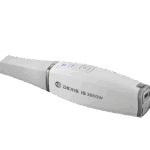Ortho Shop brought value to South African orthodontists by offering competitively priced products. Can it do the same in America?
By Steven Martinez
Orthodontics is practiced worldwide, but the methods and materials used by doctors are still mostly produced in the United States.
Mauro Lucchesi, MChD, is an Italian-born orthodontist based in Cape Town, South Africa. Lucchesi has been in private practice in South Africa since 1985, and about 10 years later, he decided to open a store to sell orthodontic supplies because the importers serving his country were charging outrageous prices.
“I started thinking about starting my own business, importing orthodontic materials because we were really getting screwed here by the people that were importing them,” says Lucchesi.
Changing South African orthodontics
In the 1980s, only two companies imported orthodontic supplies from the United States to South Africa, and the markups were as high as 600%. Lucchesi figured that if he could source his products from the same manufacturers, he could easily undercut the competition.
In his first month, Lucchesi says he only made $300 in sales, but a trip to San Diego, Calif, in 1999 for the AAO Annual Meeting allowed him to make important connections to people in the industry, and his store, Ortho Shop, started to grow. Lucchesi says Ortho Shop grew, and his store eventually served most of Sub-Saharan Africa, including countries like Zimbabwe, Namibia, Uganda, and Kenya.
“We changed the South African orthodontic landscape forever,” says Lucchesi. “Which was good.”
Even in a relatively wealthy country like South Africa, the orthodontics business is quite different from that in the United States. In big US markets, you might find five orthodontists within a 10-mile radius, but in South Africa, says Lucchesi, there are only 120 orthodontists in the whole, quite large, country. Waitlists for a consultation can be as long as 6 months.
“We’ve never had a problem of not having enough work,” says Lucchesi.
Coming to America
Silvana Jooste, Lucchesi’s daughter, has managed Ortho Shop for the past 20 years as it has grown. In 2021, she and her husband Marius decided to emigrate to the United States to give their young children more opportunities. The immigration process was slow, Jooste says, exacerbated by the pandemic, which was still affecting international travel. Her family decided to stay in Italy during the process so that the children could experience their roots.
In September 2022, the Joostes were finally able to receive Green Cards and settled in Virginia Beach, Va. They had wanted to take a break from orthodontics for a while, but with some persuasion from Lucchesi, they decided to try to bring Ortho Shop to the United States.
If the US immigration process is fraught, so is importing a medical supply business.
“It actually took quite a long time to set up because getting registered with the FDA took some time, and we wanted to be compliant with UDI (Unique Device Identification) codes,” says Jooste.
The process also included a complete reworking of the Ortho Shop website for US audiences. The original one, used in South Africa, is somewhat basic by modern standards, no more than some drop down menus to find products with descriptions and images and a contact page with phone number and email. The US website required a complete rebranding, modern interface, and crucially, an online shopping component. The website was launched in February of this year.
Jooste says that they will also add online shopping to the original site, but the concept of an online store is somewhat new for the South African orthodontics market.
Breaking into the US market
While it was easy to undercut the overpriced competition of importers in South Africa, in the United States, orthodontists are able to shop different vendors, and products are manufactured in the country. But that doesn’t mean there isn’t room to offer competitive pricing, says Lucchesi.
“There’s a lot of price disparity in the [United States] as well. The big manufacturers are probably triple what we charge for the same thing,” says Lucchesi.
OrthoShop in the United States is a small operation run mostly by Silvana and her husband. They say that the leanness of their business allows them to keep overhead down and offer a more personal customer experience. In addition to handling customer service, they oversee product shipping and even advise customers which products they need.
“We’re a small company, but our philosophy is one customer at a time,” says Jooste. “It’s really nice for me that a customer can phone us, and it’s either Marius or myself that answers the phone, and we can help them. We try to give personal attention to customers.”
They also leverage Lucchesi’s relationships with all the major US manufacturers to offer the same products at a more competitive price.
“We go directly to the manufacturers that manufacture for all the big companies,” says Jooste. “Our customers are getting the same product, but we go direct, so there’s no middleman, and we market products under the Ortho Shop brand. We try to go from factory to customer with nothing in between except us.”

Creating a competitive bracket
Ortho Shop has also begun making its own products. Lucchesi started working on a twin bracket of his own design about 3 years ago to compete with more expensive self-ligating brackets. Necessity is the mother of invention, and in South Africa, where fewer people can afford orthodontic treatment than in the United States, he says he wanted to find a cheaper way to offer high-quality treatment.
Lucchesi says self-ligating brackets tend to be better at the beginning of treatment than twin brackets but are not as effective at the end. His design added an extra slot to the bracket, which allows it to be much better at the beginning of treatment while still retaining its effectiveness towards the end of treatment. With their permission, he tested the design on several patients in his practice and began to market it in his home country.
“It can do what an expensive self-ligating bracket can do at virtually a tenth of the price,” says Lucchesi.
Lucchesi says that he uses it on all of his patients and many orthodontists have adopted it in South Africa. He hopes that it will see similar success in the United States where it is available through Ortho Shop.
Ortho Shop has plans to expand its orthodontic product line, including instruments, additional types of brackets and wires, and other innovative products.
“We hope that Ortho Shop really makes a good break in America. Not because it’s mine, or my daughter’s and her husband’s place but because we are a very down-to-earth, good quality, well-priced enterprise,” says Lucchesi, who at 73 is still splitting his time at his thriving orthodontic practice in South Africa. “I think Ortho Shop needs a little bit of good fortune, and American orthodontics will be better for it because we are going to contribute value, for sure.”










